Lottery, casinos, sports wagering operators support Responsible Gaming Education Month
Maryland Lottery and Gaming and the state’s casinos and sports wagering businesses are taking time in September to emphasize the importance of responsible play in recognition of Responsible Gaming Education Month.
Sponsored by the American Gaming Association, which represents the casino and gaming industry, Responsible Gaming Education Month highlights efforts to promote gaming literacy, consumer education and employee training programs. Maryland’s casinos and sports wagering operators are planning a variety of educational programs for their employees and customers during September, including collaboration with the Maryland Center of Excellence on Problem Gambling, which coordinates problem gambling services and educational outreach across the state.
The Maryland Lottery is supporting Responsible Gaming Education Month with a series of four videos that explain the odds and randomness involved in Lottery games, as well as information about responsible play and how Marylanders can obtain problem gambling assistance at no cost. Visit the Responsible Play page to watch the videos.
“Providing education about our games is one of the most valuable things we can do to promote responsible play,” said Maryland Lottery and Gaming Director John Martin. “We want our players to be informed because we want them to enjoy themselves, and games are always more fun when you understand them.”
Along with the new video content and information available on the Responsible Play page, information on Lottery rules, odds and prize structures is available by visiting the Games section of mdlottery.com. Lottery players who have questions about games or the outcomes of their tickets can call the Lottery’s office at 410-230-8800, or send an email to the Communications Division at [email protected].
Maryland residents can obtain confidential, no-cost counseling by calling 1-800-GAMBLER or visiting mdgamblinghelp.org to connect with the Maryland Center of Excellence on Problem Gambling, which is part of the Maryland Department of Health. The state’s casino operators pay annual assessments that support the Center’s services. In Fiscal Year 2024, these contributions totaled $4.47 million.
“If you know someone who may have developed a gambling problem and you aren’t sure how to talk to them about it, you can get advice about how to start that conversation by calling 1-800-GAMBLER,” Martin said. “It’s important for everyone to know that help is available.”


